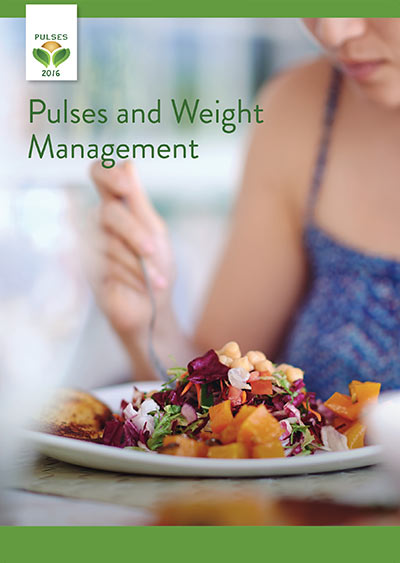
The Global Pulse Confederation have published a nutrition guide to highlight the weight-loss benefits of beans, peas, chickpeas and lentils.
Recent research in the American Journal of Clinical Nutrition1 has shown eating just one cup of pulses a day helps weight loss by making you feel fuller for longer.
Why are pulses so effective for weight management?
- Pulses have a low glycemic index value, making people feel full and less likely to overeat
- Protein in pulses stimulates gastric hormones that cause the feeling of fullness
- Fibre in pulses increases chewing time and delays gastric emptying, reducing food intake
Click HERE to download the guide.
You can promote and raise awareness of Pulses and Weight Management and the weight-loss benefits of beans, peas, chickpeas and lentils by using the hashtag #LoseWeightWithPulses on social media.
“Obesity is a major risk factor for developing heart disease, hypertension, type 2 diabetes and several cancers. It’s become a major global concern, with worldwide obesity rates more than doubling since 1980.2
Yet, obesity and overweight can be prevented by making healthy lifestyle choices, in particular through proper nutrition and diet.
Mounting evidence suggests that eating one daily serving of pulses — beans, peas, lentils and chickpeas — is a useful weight control strategy. This short guide was created to help people make healthier dietary choices. Under the guidance of leading nutritionist Leslie Beck RD, it flags some of the important science on the role of pulses in weight management.
We hope the guide will encourage professional dieticians and nutritionists to look afresh at these ancient, affordable and highly nutritious crops.”
Huseyin Arslan, President, Global Pulse Confederation
- Effects of dietary pulse consumption on body weight: a systematic review and meta-analysis of randomized controlled trials, American Journal of Clinical Nutrition, 2016 http://ajcn.nutrition.org/content/early/2016/03/30/ajcn.115.124677.abstract
- Obesity and overweight. World Health Organization, 2016 http://www.who.int/mediacentre/factsheets/fs311/en/
